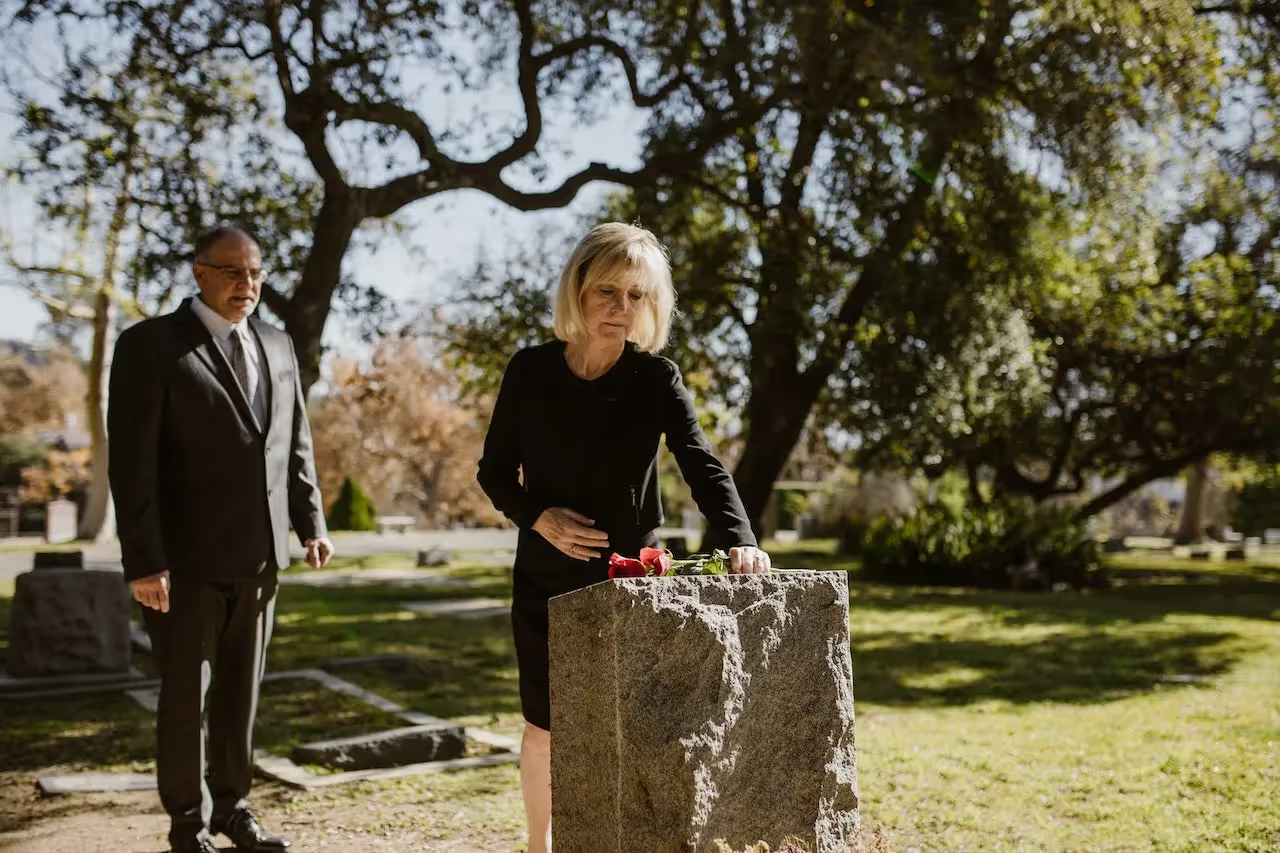Grief is a normal human response to losing a loved one to death. It could leave you feeling angry, isolated, and helpless. The pain is overwhelming, and it...

Grief is a normal human response to losing a loved one to death. It could leave you feeling angry, isolated, and helpless. The pain is overwhelming, and it could feel like you'll never recover. Do you want to learn how to heal from grief? Here are some tips for easing the pain of grieving.
We have to understand the five stages of grief to prepare for the journey ahead. Here are the 5 stages of grief based on the model developed by Elisabeth Kübler-Ross. In 1969, Kübler-Ross wrote a book called On Death and Dying, where she talked about the five stages of grief.
Denial is a defense mechanism that acts as a buffer against the pain of loss. It can be helpful in the short term but can also prevent healing if it persists.
The feeling of anger often comes with an overwhelming sense of frustration and hostility. Grieving people may feel angry at fate, God, and other people. Anger may also make them feel guilty, believing it reveals weakness or a lack of faith.
Bargaining involves wanting to deal with God or fate to change the situation. Bargaining delays your acceptance of the truth. Feelings of guilt may also arise at this stage. In retrospect, you might wonder if you could have prevented the death somehow.
A common symptom of depression is feeling hopeless and helpless. You may lose all interest in activities you once enjoyed. You may start to believe that there's no point in living and things will never get better.
Depression can also lead to physical symptoms such as:
If you're experiencing any of these symptoms, contact your doctor or a mental health professional straight away.
Acceptance is the fifth and final stage of grief. In this stage, people come to terms with their loss and begin to rebuild their lives. Getting to this stage could take months or even years. The acceptance stage can still bring pain and sorrow but is not as intense as in the earlier stages.
The uncertainty that comes with losing a loved one is one of the hardest things to deal with. Understand that it is normal to have the following reactions when grieving:
Physical symptoms such as:
Other feelings that may arise could also include:
Don't try to bottle them up or push them away. Allow yourself to experience your emotions and give yourself time to heal.
Give yourself the patience and grace you need to get through this tough time. A productive way to direct your energy and pain is to work towards achieving your dreams. Choose to pursue your goals for the future as you endure the sadness of grieving. It will give you something to look forward to. You can start by brainstorming a list of things you'd like to accomplish, then take small steps towards making them happen.

There are some things that you cannot express to other people, no matter how close they are to you. Journaling is an excellent way to get out all the feelings and thoughts you have swirling around in your head. Studies have also shown that journaling can help you cope with grief and improve your mental health. It can be therapeutic to pour your heart out on paper and get everything off your chest. For a more focused journaling time, try these prompts to help you understand your inner thoughts and feelings:
What emotions am I feeling right now?
How can I work through them in a healthy way?
What are some things I'm grateful for today?
What is my biggest worry right now?
How can I take small steps to address this worry?
Anger is one of the emotions that you will experience while grieving. How do you heal from grief and let go of the anger that comes with it?Exercising can be a way to help you work through anger. Research shows that people who exercise regularly efficiently manage their anger. Taking a brisk walk, going for a run, or hitting the gym can help you to release some of that anger physically.
Honor the memory of your loved one and everything they meant to you. Living your life in a way that would make your loved one proud can help you feel connected to them. Dedicate your time, energy, and love to causes and people that mattered to them when they were alive. In this way, you can keep their memory alive while also moving forward with your own life.
Many people find comfort in the form of group activities or counseling. Bereavement groups are a great way to share your experiences and gain support from others who have gone through the same thing. There is no right way to grieve, so do what feels best for you. Some people prefer to be alone during this difficult time, while others find solace in talking to friends and family members. Don't hesitate to ask for assistance when you need it. The love and support of the people around you can be a great source of comfort.
Grief is a typical reaction to losing a loved one. It can be an incredibly isolating and frustrating experience, but there are ways to overcome it. Grieve in your own way and at your own pace. Be patient and allow yourself to experience all the emotions that come with grief. Pursuing your dreams for the future can help you heal from grief and give you something to focus on during this challenging time. This can help you to feel closer to them and give you a sense of purpose. Seek help from family members and friends to help get you through. Talking to a mental health professional will also help you get through grief and give you the tools to deal with your sadness.
Anger Management Exercises to Help You Stay Calm
Exercise and its Impact on Anger Management Mini Review
How Journaling Can Help You in Hard Times
If you find yourself having difficulty managing daily activities due to lingering feelings associated with grief such as sadness, anger, guilt or numbness; then it might be beneficial for you to seek professional help through our Colorado Springs Grief Counseling services. Our therapists are trained in helping clients identify their needs and goals related to grieving.
It's important to remember that you are allowed to grieve however you need to, and that doesn't mean you have to ruin the holidays for everyone else. If you need to take a break from holiday festivities, do so. Go for a walk, take a nap, watch a movie—whatever you need to do to take care of yourself. You can also try talking to your family about your grief ahead of time and asking for their understanding and support.
We offer a variety of specialized services, including individual therapy, group therapy, and various therapeutic approaches such as cognitive-behavioral therapy (CBT) or psychodynamic therapy.
Grief may feel worse at night because sleep disturbances are common during the grieving process. As nighttime falls, distractions diminish and we're left alone with our thoughts, which can make the loss feel overwhelming.
The duration of grief counseling varies for each individual, depending on the severity of their grief and their progress in therapy. Our therapists will regularly assess your progress and adjust your treatment plan as needed.
There is no "right" or "wrong" answer when it comes to how long grief will last in the elderly. For some people, the grieving process may last for several months or even years. For others, it may come in waves – they may have periods of intense grief followed by periods of relative calm. It's important to remember that everyone grieves in their own way and at their own pace.